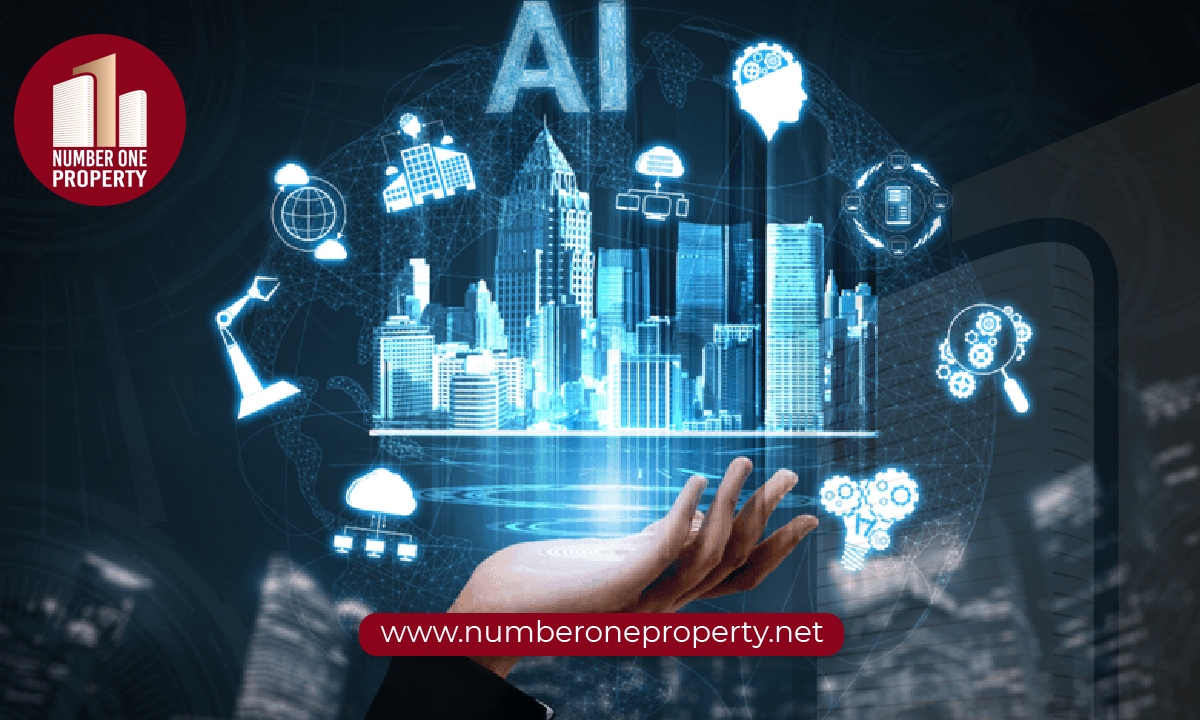Accurate property valuation is a cornerstone of successful real estate transactions and investments.
Knowing a property's right value is important in the real estate market. Traditional methods often use opinions and old data, which can cause mistakes. But now, artificial intelligence (AI) is changing how we determine property values.
AI uses smart tools to help us better understand market trends and property prices, making valuations more accurate and easier.
As AI changes the way we value properties, it’s clear that using these tools is essential to staying competitive.
In this article, we’ll explain The Role of AI in Achieving Accurate Real Estate Assessments and show the best tools to use.
The Impact of Innovation on the Real Estate Market

The real estate market has experienced significant shifts due to technological advancements, beginning with the introduction of email, which streamlined communication between agents and clients, allowing for quicker responses and enhanced collaboration.
As social media platforms gained traction, they transformed property marketing by enabling agents to showcase listings to a broader audience, engaging potential buyers through visually appealing content and targeted advertising.
Today, artificial intelligence is revolutionizing the industry further by providing data-driven insights, predictive analytics for market trends, and personalized property recommendations, making the buying and selling process more efficient and tailored.
This technological evolution has not only increased accessibility and transparency in real estate transactions but has also reshaped consumer expectations and behaviors, creating a dynamic marketplace that continues to evolve.
Transforming Real Estate: The Impact of Technology on Property Valuation and Investment Returns
The relationship between real estate and technology has evolved dramatically in recent years, with innovation driving significant changes in how properties are assessed and valued.
As the industry increasingly adopts advanced technologies, such as artificial intelligence (AI), the accuracy and efficiency of property assessments have improved markedly.
Consequently, the greater the deployment of these technological tools, the higher the potential returns on investment, positioning real estate as a forward-thinking sector that embraces change for financial growth.
What is Artificial Intelligence?
Artificial Intelligence (AI) is a technology that thinks and does tasks like humans.
it can learn by looking at data, finding patterns, and making predictions.
It also helps machines use human language, and see and recognize images or videos.
AI learns using systems that work like the human brain.
As AI gets better, it's used in many areas: healthcare, money, real estate, and transport. As a result, we are changing how we use technology.
How AI Transforms Real Estate Valuation

Artificial intelligence (AI) is changing valuing properties by making assessments more accurate.
unlike traditional methods, AI tools study large amounts of data predicting property values.
Automated valuation models (AVMs) use AI to give information about market trends. This makes the process faster and easier.
Using AI for property valuations helps people make better decisions.
using these advanced AI tools will change the way people deal with properties.
Benefits of Using AI for Real Estate Valuation
Using AI in real estate valuation is changing the industry. And that's by making it more accurate, efficient, and fair.
As technology improves, the advantages of AI will grow. It's making real estate better for everyone involved.
Enhanced Accuracy and Objectivity
AI-powered valuation tools use a lot of data, like past sales and economic factors.
Traditional methods often depend on personal opinions. But, AI can give a more accurate property valuation by analyzing data.
This objectivity helps cut human error and bias. By making sure valuations are based on real facts instead of personal views.
Predictive Analytics
AI can predict future property values by spotting patterns and trends in the data.
Predictive analytics consider factors. These factors are market conditions, local economic growth, and population changes.
This helps investors and real estate professionals expect property value changes. To allow them to make smarter investment decisions ahead of time.
Automated Valuation Models (AVMs)
Automated Valuation Models (AVMs) use algorithms to quickly determine property values.
They can process large amounts of data fast, giving instant valuations. That is helpful for quick transactions.
This automation makes it easier for both buyers and sellers to access. It saves time and lowers costs compared to traditional appraisal methods.
Real-Time Data Integration
AI systems can deal with real data from property listings, sales, and economic reports. It keeps valuations current with the latest market changes.
This helps people make decisions using the most up-to-date information.
Risk Assessment
AI can look at past data and current market trends so that it assess risks in property investments.
It can spot risks like declining neighborhoods or economic downturns. Then investors can make smarter decisions about where to invest their money.
Market Trend Analysis
AI tools can study market trends and highlight areas with high growth potential.
It can spot emerging markets or undervalued properties. so, investors can take advantage of opportunities that traditional methods can miss.
Customization and Personalization
AI can customize property valuations based on individual preferences and investment strategies.
This personalization gives investors insights that match their specific goals. this will make the valuation process more useful and practical for them.
Scalability
AI can handle larger datasets without taking more time or increasing costs. So, it does not matter how real estate transactions grow.
This is helpful for big companies or platforms. That's because they need fast and reliable valuation services across different markets.
Improved Client Experience
AI improves the client experience in real estate. It is offering faster and more accurate property valuations.
Clients get quicker results and more reliable information. That leads to higher satisfaction and greater trust in real estate professionals.
Regulatory Compliance
AI includes important legal factors in the valuation process. This can help real estate professionals follow local regulations.
They can stay ahead and better serve their clients in a competitive market. This lowers the risk of legal problems like not following industry standards.
Fundamental AI Technologies in Real Estate Valuation

Artificial intelligence (AI) is revolutionizing real estate valuation by enhancing accuracy and efficiency through advanced algorithms and machine learning.
Here are the AI technologies used in the real estate market:
Machine Learning Algorithms
Machine learning algorithms have revolutionized the way property values are predicted by leveraging historical data and identifying intricate patterns within it.
By analyzing vast datasets that include past sales prices, property characteristics, and economic indicators, these algorithms can discern relationships that may not be immediately apparent to human analysts.
Techniques such as linear regression, decision trees, and neural networks enable the models to learn from historical transactions, adjusting their predictions based on the unique attributes of each property and market trends.
As these algorithms continuously refine their predictive capabilities through ongoing data input, they provide real estate professionals and investors with valuable insights, enhancing decision-making processes and improving the accuracy of property valuations.
Predictive Analytics
Predictive analytics plays a crucial role in forecasting market trends and future property values by utilizing historical data and sophisticated statistical techniques to identify patterns and make informed predictions.
By analyzing various factors such as location, economic indicators, demographic shifts, and historical sales data, predictive models can offer insights into potential price movements and market dynamics.
This enables real estate professionals, investors, and developers to anticipate changes in demand, optimize investment strategies, and make data-driven decisions.
As predictive analytics continues to evolve with advancements in technology and machine learning, its ability to provide accurate forecasts becomes increasingly valuable, helping stakeholders navigate the complexities of the real estate market with greater confidence.
Image Recognition and Computer Vision
By employing advanced algorithms, AI can analyze high-resolution images of properties to identify key features such as architectural styles, structural integrity, and signs of wear or damage.
This automated analysis not only speeds up the valuation process but also enhances accuracy by minimizing human error.
Furthermore, AI can compare property images against extensive databases of similar properties, allowing for real-time market comparisons and more precise pricing strategies.
As these technologies continue to advance, they enable real estate professionals to make more informed decisions, ensuring that property assessments reflect true market conditions.
Natural Language Processing (NLP)
Natural Language Processing (NLP) is transforming the real estate landscape by enabling AI to analyze vast amounts of textual data, including local market trends, news articles, and social media sentiment.
By harnessing NLP, real estate professionals can gain insights into how public perception and current events impact property values.
For instance, sentiment analysis can reveal how community opinions about new developments or changes in local policies influence buyer interest and pricing.
Additionally, NLP algorithms can sift through real estate listings, financial reports, and market analyses to identify emerging trends and forecast shifts in property values.
This capability allows agents and investors to make data-driven decisions, ensuring they remain competitive in a dynamic market environment.
AI Tools and Technologies for Real Estate Valuation

The real estate valuation process is changing thanks to advanced AI tools. These tools make property assessments more accurate and efficient. For example, Popular platforms like Zillow's Zestimate, Redfin, and HouseCanary.
These platforms look at data including past sales, neighborhood trends, and property features. This helps them provide real-time valuations that are often more accurate.
Software like CoreLogic and PropertyRadar uses predictive analytics. They predict market trends and property values. This helps investors make better decisions.
AI tools simplify the valuation process and give real estate professionals helpful insights that were hard to get before. It's changing how properties are assessed in today’s competitive market.
Challenges and Limitations of AI in Real Estate Valuation
AI tools offer significant advantages in real estate valuation. But, they also come with challenges and limitations that warrant careful consideration.
One major concern is the potential for bias in algorithms. This can happen when some properties or neighborhoods are not well represented.
This can lead to inaccurate valuations that disproportionately affect specific demographics.
Many people have misunderstandings about what AI can do. People think it can completely take the place of human expertise. In truth, AI is a tool that supports and improves human decision-making, not a replacement.
It's important to address these issues to build trust in AI technologies. people should ensure that theyre using AI responsibly in the
real estate industry.
The Future of Real Estate Valuation with AI
The real estate industry is using more technology. however, AI will change how properties value. It will look at large amounts of data to provide more accurate valuations.
Predictive analytics will help real estate professionals predict market changes finding investment opportunities.
Using AI with blockchain technology could make transactions clearer and safer. This will help to speed up the valuation process.
As these technologies develop, we’ll see more data-driven decisions. It will help agents, investors, and homeowners make better choices in the market.
Conclusion
Using AI in real estate valuation is a big step forward. It can help professionals making informed decisions.
stakeholders can gain better insights and more accurate property value assessments. that's because of advanced algorithms and predictive analytics.
AI tools will help real estate professionals. By handling challenges, spotting good opportunities, and serving their clients more effectively.
Embracing this change will help everyone in the real estate field succeed in a competitive environment.
Related Articles:
The Impact of Globalization on Real Estate Markets
Real Estate in The Digital Age Proptech and smart homes


